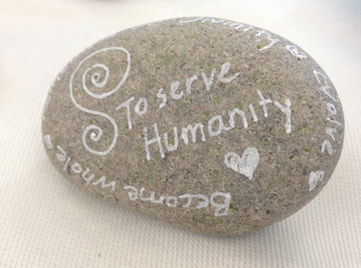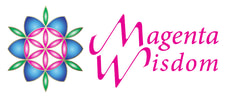|
 These days, I find myself eager for spaces designed for emergence. I think I have graduated from the “pretend to be in control” stage and I’m now getting acquainted to the “be ready to be surprised” stage. My life’s philosophy has always been: everything is learning. But now, I have an intense awareness that every moment, and each encounter, is a gift from the universe to support my evolution. I got an invitation to participate in this year’s Chautauqua at Mt. Madonna Center, in the Santa Cruz Mountains. The invitation was sufficiently vague to awaken my curiosity and my willingness to practice my intuition. Even though there were several reasons why staying at home and “getting things done” was really attractive, I decided that three days in nature and community could only bring me good. Saying yes involved the paradoxical combination of going with no expectations while simultaneously deeply knowing that it was going to be awesome. Although I have heard of other Chautauquas, I really didn’t know much about the spirit behind these gatherings. It was in Chautauqua, New York, in the late 18th and early 19thcenturies, where the Chautauqua movement for adult education began as a way to bring culture, entertainment and learning to rural communities. Since then, the tradition has evolved in different manifestations that continue to celebrate learning, art and community. This was the 9th Chautauqua at Mt. Madonna Center, and it was after I got there that I learned that their first Chautauqua was a creative alternative to a board meeting for the Mt. Madonna School. Ah… nothing like rebelling against the status quo to reconnect to a path with heart! The invitation included a question as preparation for the gathering: “What is it that you really, really care about in your in life and role as an educator?” That was the first clue that this invitation was meant for me. A similar question has been very present for me in the last few months. If there is one word that describes my vocation it would be “educator.” And yet, sometimes I struggle with its traditional interpretation deeply linked to formal academia. First of all, I don’t consider myself a “teacher.” I do notenjoy teaching – in the literal sense. I don’t like to be in front of a room talking to a group. I don’t feel that’s a good use of anyone’s time. In this day and age, I’m convinced that knowledge and information can be freely accessed through the web – from TED talks to YouTube videos to blogs and millions of other online resources. But mainly, I don’t think I have anything more important to share than anyone else. So spending more time talking than listening makes no sense to me. For me, education happens in relationship, through dialogue, in circle, and not in a one way presentation mode. Even in more innovative academic programs, sometimes what starts as an ambitious transformative learning ideal ends up been constrained by the structure, requirements, extrinsic incentives and the cultural inertia of academia. It is difficult to fit real world relevance into the neatness of the academic calendar or to fully allow a learning process to unfold without defining beforehand what will be the outcome. Saybrook University has been a kind of an academic oasis for me. Because of the adult learning philosophy and the research orientation, I feel I can partner with my students in meaningful explorations that are connected to their deepest cares and concerns. More often than not, I have noticed that Saybrook students manage to integrate their learning inquiries with some essential aspect of their personal healing and transformation. So I feel very fortunate to have one foot in this kind of academia – the alternative academia that has heart and that seeks to connect learners with their callings. Beyond my formal teaching and advising, I also consider myself an educator when I engage in work that involves facilitating, consulting, or coaching. The etymological root of educator is educare which means to elicit, evoke or lead out: a function more akin to gardening since it involves creating the conditions for the goodness of the human spirit to blossom. The Mt. Madonna Chautauqua was a gathering of this kind of educators. A coming together in circle – all equal, interconnected in our diversity, creating sacred space and wholeness. I love gatherings of heartfelt people. I love sitting in community and engaging in dialogue. I love coming together to learn, reflect, and be. The (very flexible and fuzzy) agenda for the three-day Chautauqua was structured around the hero’s journey: The Call, The Journey, The Return. One of the sessions during the first day was: Endings and New Beginnings in the context of the hero’s journey. That’s all I needed to know for me to come. Although the Chautauqua Design Team managed to sketch a full agenda for the three days, I knew that this was going to be an experience of listening to what wants to emerge. I was right. This was a group ready to ditch a pre-designed agenda in order to honor what needs to be honored in the moment. I walked into a room full of new faces. I was greeted with a huge smile that deeply communicated “I’m glad you are here.” Every single individual I met was a breath of fresh air: this was a space in which we could show up authentically. The group was beautifully diverse, but the spice of the gathering was the presence of youth: students from the Mt. Madonna High School. Their voices and experiences filled us all with hope and validated my commitment to humanistic education. The three days flowed like water: from whole circle dialogue to small group conversations, from singing to silence, from thinking to creating collages, from sitting to walking, from sharing to listening. Work, learning and play all at once. And although the experience was completely joyful and relaxed, it was also intense and deep. There was an abundance of knowledge and wisdom, and yet, the power of the experience was in its healing and regenerative quality. This power resides within each of us. True education is not about transmitting information – we have known that for a long time – but about creating safe spaces in which we can be ourselves and share our dreams and concerns, our ideas and questions. Access to information is ubiquitous. But freedom to be and the support to learn to love learning is such a rare thing. In a world distracted by overstimulation and enamored with technological fixes, reclaiming education as a deeply human experience seems almost impossible. In a world rushing towards catastrophe, slowing down to connect with each other seems paradoxical. Those of us who think of ourselves as educators have the simple, and yet complex, task of creating space for the unfolding of the whole human in each and everyone one of us – and for the weaving of the bonds that will enable genuine collaboration. My journey has been about integration. The Mt. Madonna Chautauqua was a kind of a ritual to recognize my “return” from one cycle in my hero’s journey: a return to reconnect with my roots, to integrate my light and shadow, and to re-imagine myself as an educator through everything I do. The return involves reconnecting to community: after gathering the lessons from our unique journeys, this is the time to come back together, to share what we learned, and to join efforts. With deep appreciation to all the participants of the 9th Mt. Madonna Chautauqua.
0 Comments
Leave a Reply. |
AuthorKathia Castro Laszlo, Ph.D. Archives
August 2015
Categories
All
|

 RSS Feed
RSS Feed